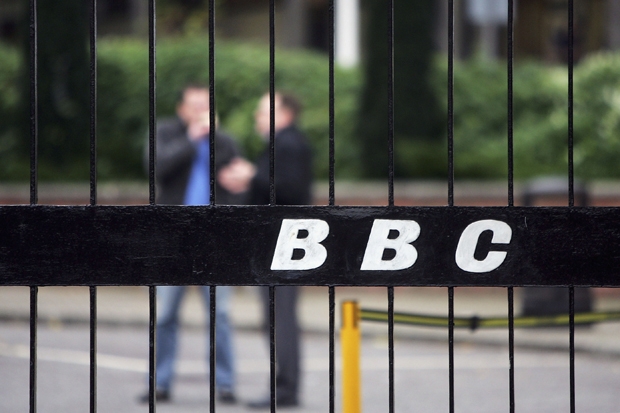Growing up in my Mum’s house, Wogan was king. Throughout the 1980s leading lights like Stevie Wonder, Diana Ross and Sammy Davis Jr sat on his sofa and – vicariously – in our living room in Tottenham too. As well as its historic duty to ‘inform, educate and entertain’, the principle of universality has always been at the very heart of what the BBC stands for. Our most cherished cultural institution is at its root a universal service that must reflect all of Britain by virtue of the simple fact that it is funded by all Britons.
In a multi-platform, digital age where more content is available than ever before and is being consumed online, on demand and on the move, viewers can now flick between Netflix, Amazon Prime and a multitude of other sources at the click of a button. This situation is challenging the Beeb’s position at the heart of our national conversation. The BBC risks slipping into irrelevancy if it fails to adapt. In order to prove that it really is a universal broadcaster, the corporation must ensure it changes just as quickly as the society that it represents.
The BBC already commits itself to ‘reflect modern Britain accurately and authentically’, and one of its public purposes, set out in the Royal Charter, is to ‘represent the UK, its nations, regions and communities’. When it comes to making good on these intentions, the evidence suggests that the BBC is falling short of the mark. This is hardly a secret. Leading figures like Lenny Henry and Idris Elba have been raising it repeatedly for years. The BBC’s own steady stream of diversity strategies, reports and action plans demonstrate that they recognise the issue, but good intentions and rhetoric have not been matched by real progress.
Not one of the BBC’s eight executive directors is from a Black, Asian, and Minority Ethnic (BAME) background (and just two are women). Meanwhile its 21 strong executive team includes only two people of colour. Just 13.2 per cent of BBC staff are non-white, a net increase of just 0.9 per cent compared to 2011, despite a raft of strategies and initiatives aimed at boosting diversity. The creation of a Creative Diversity Development Fund in 2014 was a step forward, but when viewed in context, the £2.1 million pot to nurture BAME talent represents just 0.1 per cent of the BBC’s total content budget and equates to the salaries of six of its top executives.
Given the slow pace of progress in recent years, it seems unlikely that the BBC will meet targets of achieving 14.2 per cent of the total workforce and 15 per cent of on-screen roles being from BAME backgrounds by 2017. By comparison, Channel 4 has announced the ambitious aim of a 20 per cent BAME workforce by 2020. Sky has committed itself to targets of 20 per cent BAME on-screen portrayal on new shows, at least one BAME individual in a senior production role on all shows and 20 per cent BAME writers on all shows. For a commercial broadcaster like Sky, the imperative is clear – their audience is changing so they have to adapt accordingly in order to survive.
Ethnic minorities are well within their rights to ask why they should continue to pay their license fee at all. BAME viewers, which will account for a third of the total audience by 2050, are beginning to turn their back on the BBC. The BBC Trust was recently forced to acknowledge a ‘performance gap’ of -48 amongst black viewers, who were asked whether the BBC represents them. Minority viewers are also increasingly voting with their remote controls. Analysis of audience data shows that the BBC Six O’Clock News’s audience share amongst BAME viewers is half of its share of the total audience, while BBC Two’s 5.7 per cent overall share of the total audience falls to 3.3 per cent when looking at solely BAME viewers.
This isn’t just about on-screen visibility, for it is the off-screen executives, commissioners and management who decide what gets made, who and what appears on our screens, who writes and who makes it. Power lies behind the scenes. What really matters is a systemic and fundamental change in the culture, attitudes and composition at management level.
For far too long the circle at the top of the corporation has been too small and too close. A focus on apprenticeships and entry level jobs won’t address the fact that only 6.7 per cent of the corporation’s senior management are from BAME backgrounds. If those decision makers are overwhelmingly white, middle-class men from metropolitan London or the home counties, who hire people in their own image, then content and programming will lack the fresh perspectives and authenticity that will speak to minority communities.
The BBC must take bigger strides to represent the diverse tapestry of communities and identities that make up our nation. A proper strategy, including specific actions, together with details of how progress will be objectively measured, would be a good start. Charter renewal also presents the perfect opportunity to place diversity at the heart of the corporation’s core values.
Most of all however, money talks and it is money that will drive real, sustainable change. The BBC didn’t tackle the under-representation of the UK’s nations and regions through monitoring, mentorship schemes or apprenticeships – they created a ring-fenced fund – and it worked. Since 2014 Lenny Henry has been calling for a similar catalyst fund for BAME productions. This would be an excellent way for the BBC to tackle under-representation quickly and effectively.
David Lammy is the Labour MP for Tottenham.






Comments